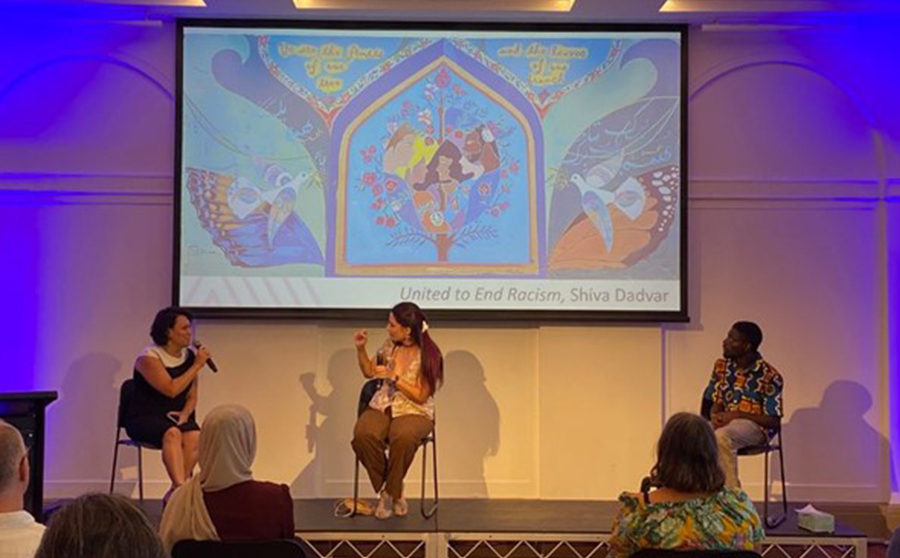- Home Home
-
Residents
Residents
- Waste & recycling Bins, clean-ups and disposing of tricky household items
- Parking Permits, car parks, maps and safety
- Your trees, plants & garden Tree pruning, native gardens and Living Connections
- Neighbourhood issues Report and resolve common issues
- Pets Dog and cat ownership, lost animals and off-leash parks
- Precinct committees Your local connection to Council
- Waverley LGA Maps Maps of the environment, planning zones and more
- Payments Pay for rates, certificates, permits and licences
-
Community
Community
- Children, youth & family services Early education, day care, support & resources
- Awards & grants Local Hero Awards, Garden Awards, Small Grants
- Get involved in your community Volunteering, creating connections, gardening
- Over 60s Services, activities, Mill Hill 60+ program
- Housing & homelessness Affordable housing, programs & support services
- Cultural diversity & inclusion Multiculturalism, language help, citizenship
- Aboriginal & Torres Strait Islander people Commitment to Reconciliation, plans & policies
- Disability inclusion Support services, access & inclusion projects
-
Business
Business
- Resources for Business Events, grants and support
- Innovation Roadmap 2025 to support business
- Tourism Home to Australia's most famous beach.
- Sponsorship Support local events
- Procurement Submitting tenders & expressions of interest to Council
- Commercial waste & recycling services Tailored waste services for business
- Mobile vending Waverley has limited mobile vending licenses
- Hello Bondi Council’s website to help visitors enjoy their stay
-
Recreation
Recreation
- Events Browse performances, exhibits and experiences
- Places of interest Historic buildings, markets, dining and Bondi Pavilion
- School Holiday Programs Fun-filled activities, workshops and events.
- Beaches & coast Beach information, safety, pool cleaning schedules
- Parks & reserves Location, public facilities and accessibility
- Arts & culture Artistic vision, creative programs, spaces and awards
- Venue & sport facilities hire Book indoor venues and sport facilities in Waverley
- Use of public spaces Events, commercial activations, filming etc
-
Environment
Environment
- Council leadership on environmental action Research, strategies and Council programs
- Climate resilience and reducing emissions Switch to electric, go solar and grants for apartments
- Water and the coast Keep beaches clean, save water and enjoy the sea
- Towards zero waste Reduce waste at home and at work
- Public tree management & urban greening Street Tree Masterplan and planting zones
- Native vegetation and animal habitat Join Bushcare and enjoy Waverley’s natural spaces
- Transport Council policy, bike and car share, electric vehicles
- Second Nature Council’s environmental news and events hub
-
Planning & Development
Planning & Development
- Development Applications The DA process, key documents & community consultation
- DA Tracking Tool Search a Development Application by number or date
- Application forms & certificates incl Planning, Rating, Construction and Occupation
- Waverley Local Planning Panel (WLPP) DA determination panel
- Compliance and regulations incl fire safety, food, pools and pollution
- Heritage incl Heritage Conservation Areas and fact sheets
- Urban planning and design Making Waverley a great place to live and work
- Major projects Council-delivered buildings, streets and parks
-
Council
Council
- Organisation structure Four directorates serve the community
- Mayor & councillors Your Mayor, Councillors, wards and contact details
- Council & committee meetings Dates, agendas and minutes of meetings of Council
- Advisory committees Advisory Committees of Council
- Policies, plans, strategies and reports Council's vision and delivery
- Jobs Current vacancies and working at Waverley
- Access to information Gaining access to publicly available information
- Payments Pay for rates, certificates, permits and licences
- Home
- >
- Community
- >
- Cultural diversity & inclusion
- >
- Building a cohesive community
- Children, youth & family services
- Awards & grants
- Get involved in your community
- Over 60s
- Housing & homelessness
- Cultural diversity & inclusion
- Aboriginal & Torres Strait Islander people
- Disability inclusion
Building a cohesive community

Waverley Council fosters an inclusive, united and resilient community where people of all cultural backgrounds can feel a sense of belonging and enjoy engaging in social, cultural, economic and civic life.
Council delivers events and initiatives in consultation with its Multicultural Advisory Committee to:
- Raise awareness about all forms of racism and its impact;
- Create opportunities for meaningful conversations; and
- Empower everyone to take simple steps to help end racism.
If you witness or experience racism:
- Stay safe and keep the people around you safe.
- Be there for people experiencing racism.
- Report racism, wherever it occurs:
- In an emergency or life-threatening situation, call Triple Zero (000) and ask for police.
- If you are threatened with violence but there is no immediate danger, take photos, record the incident and call the Police Assistance Line (131 444).
- If the incident is not a police matter and you cannot resolve the situation directly, or you do not feel comfortable doing so, you can seek general advice and make a complaint with Anti-Discrimination NSW or the Australian Human Rights Commission. You can also lodge a complaint using the Translating and Interpreting Service (131 450).
Events and programs
Council delivers events and programs designed for cross-cultural conversations and to support people to create positive change in the community.
Culture Waves is a three-month intercultural program held between February and April, open for young people aged 14-18 years old. It provides an opportunity for participants to volunteer and learn new skills, which may be used towards their Duke of Edinburgh’s International Award.
Discover Bondi – Meet new people – Ask any questions.
International Friends in Bondi is an initiative for people who have recently moved to Australia. Events are organised throughout the year and include a mix of recreational activities and important local information with partner organisations. All events are free.
Council offers two panels on the Bondi Beach Sea Wall to marginalised artists of culturally diverse backgrounds. The selected artists are supported to complete their mural and engage with the local community.
Council organises a range of annual events with guests from culturally diverse backgrounds on the topics of diversity and inclusion.
Find out what’s happening across Waverley, including talks, screenings and activities for kids, by browsing our Events.

Useful resources
- Cultural Diversity Strategy 2021-2031 – Council’s commitment to building an inclusive, cohesive and resilient community for people of all cultural backgrounds.
- Anti-Discrimination NSW or Australian Human Rights Commission – Make a complaint about racism you have witnessed.
- Language assistance – Support for people who prefer to communicate in a language other than English.
- About antisemitism- Council has endorsed the full International Holocaust Remembrance Alliance working definition of antisemitism (with the hyperlink here) and has developed a Strategy to Combat Antisemitism to outline Council’s commitment to ensuring Waverley remains a place where all people are respected, valued and safe.
- Nazi symbols in NSW – It is a criminal offence to knowingly display a Nazi symbol in public.
For more information, email diversity@waverley.nsw.gov.au or call 9083 8658.
Stay in the loop
Find out about opportunities and events by subscribing to Council’s newsletters.
